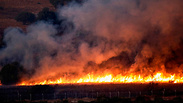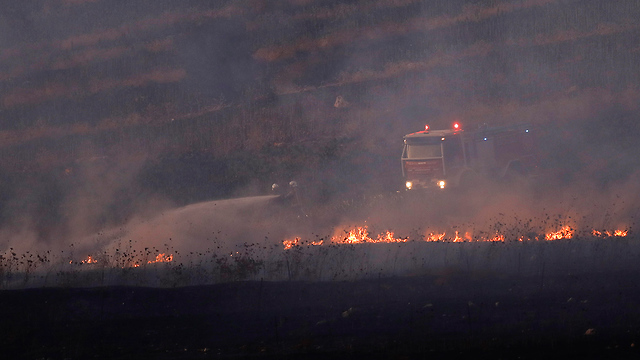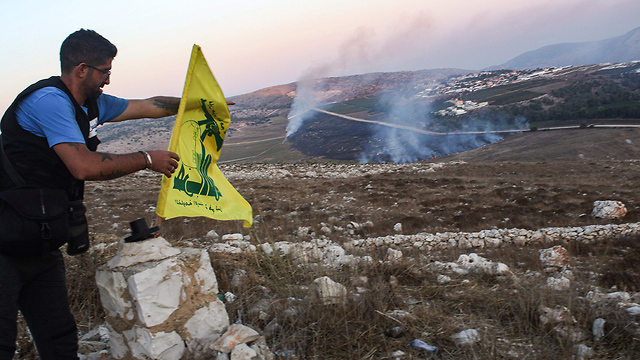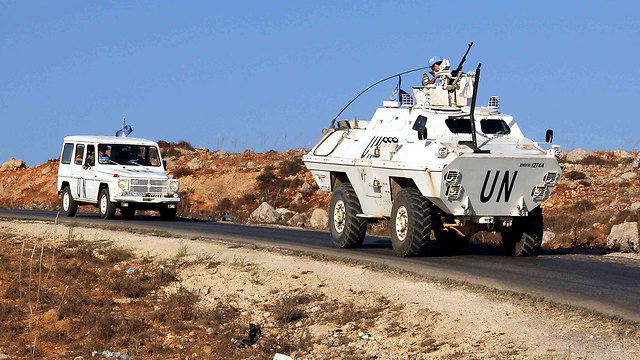

Report: Hezbollah's anti-tank missile attack not in response to Israeli drones
London-based newspaper Asharq al-Awsat reports the firing of missiles at IDF base by Lebanese terror group was in retaliation to the Israeli strike in Syria that killed 2 Hezbollah militants and the response for the alleged UAV attacks is still to come
Hezbollah claimed responsibility for the attacks in the area of Avivim on Sunday afternoon that saw several anti-tank missiles fired at an Israel Defense Forces base and at several military vehicles from Lebanon. Prime Minister Benjamin Netanyahu said his country responded by launching approximately 100 artillery shells at the sources of fire. No Israelis were hurt in the incident.
The London-based, Arabic-language newspaper Asharq al-Awsat reported the border flare-up on Sunday was in response to an Israeli attack in Syria last week, in which at least two Hezbollah militants had been killed, rather than the alleged drone attack.
“The retaliation was not in response to the drone attack in the Dahieh neighborhood in Beirut,” a source told the paper, adding that a response to the UAVs incident will come later.
An Israeli source, however, told the paper that Israeli security services believe that Hezbollah leader Hassan Nasrallah is content with the outcome of Sunday’s incident and will not launch any further attacks.
According to the newspaper, many international officials had intervened in an effort to prevent an escalation between the two sides which could have led to an all-out war.
“Russia mediated communication between Israel and Hezbollah,” said the report. The paper added that Russian officials told Israel that Hezbollah’s response would be limited in scope and the terror group is not interested in war. “Hezbollah must respond to Israeli actions against it, especially in light of the drones incident.”
Sources tell the paper that Israel sent Hezbollah a similar message, emphasizing it is “not interested” in a large-scale military conflict.


















